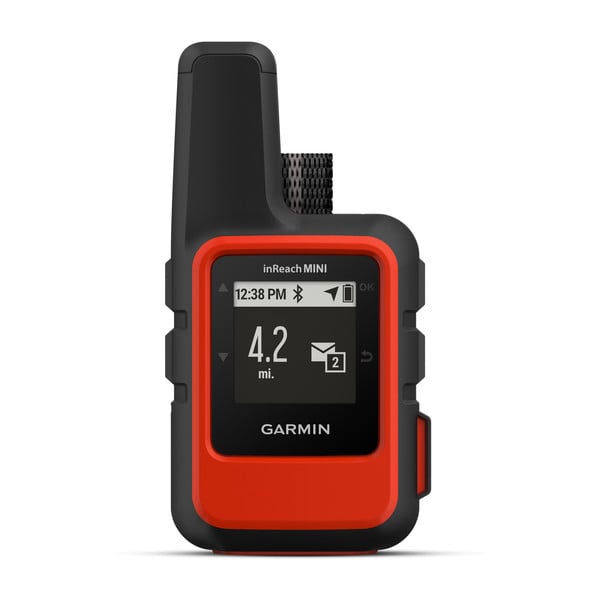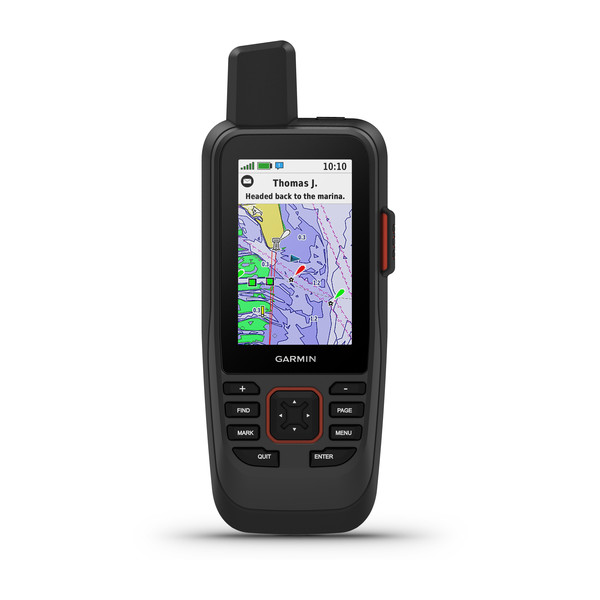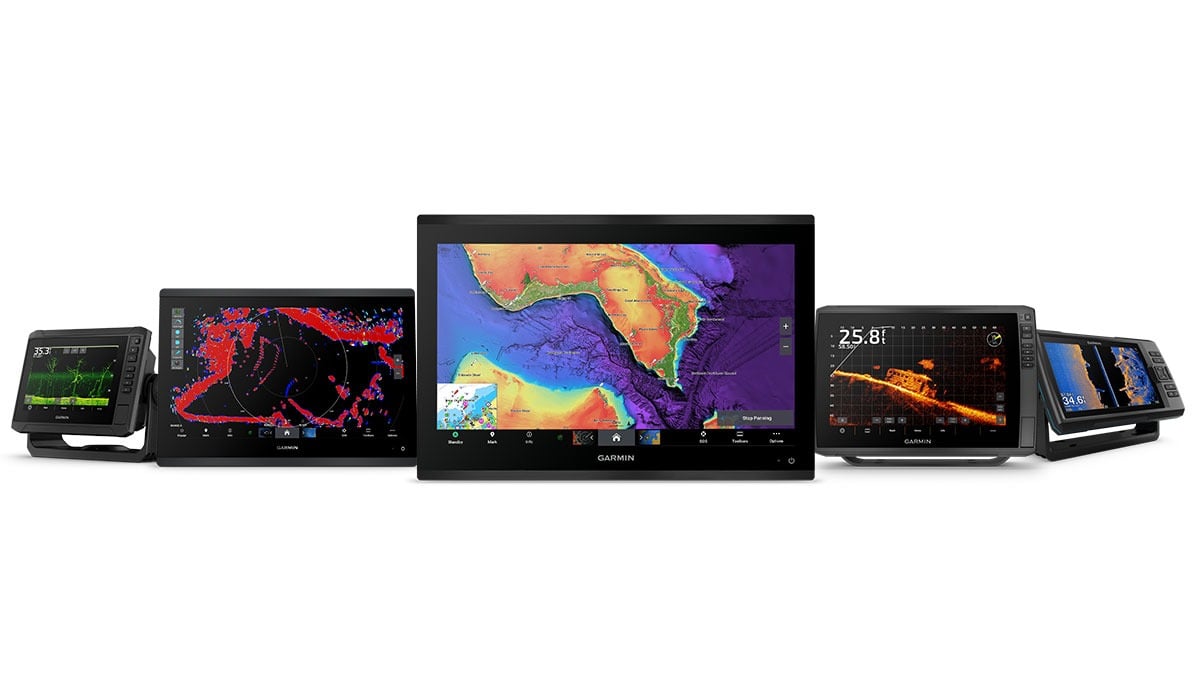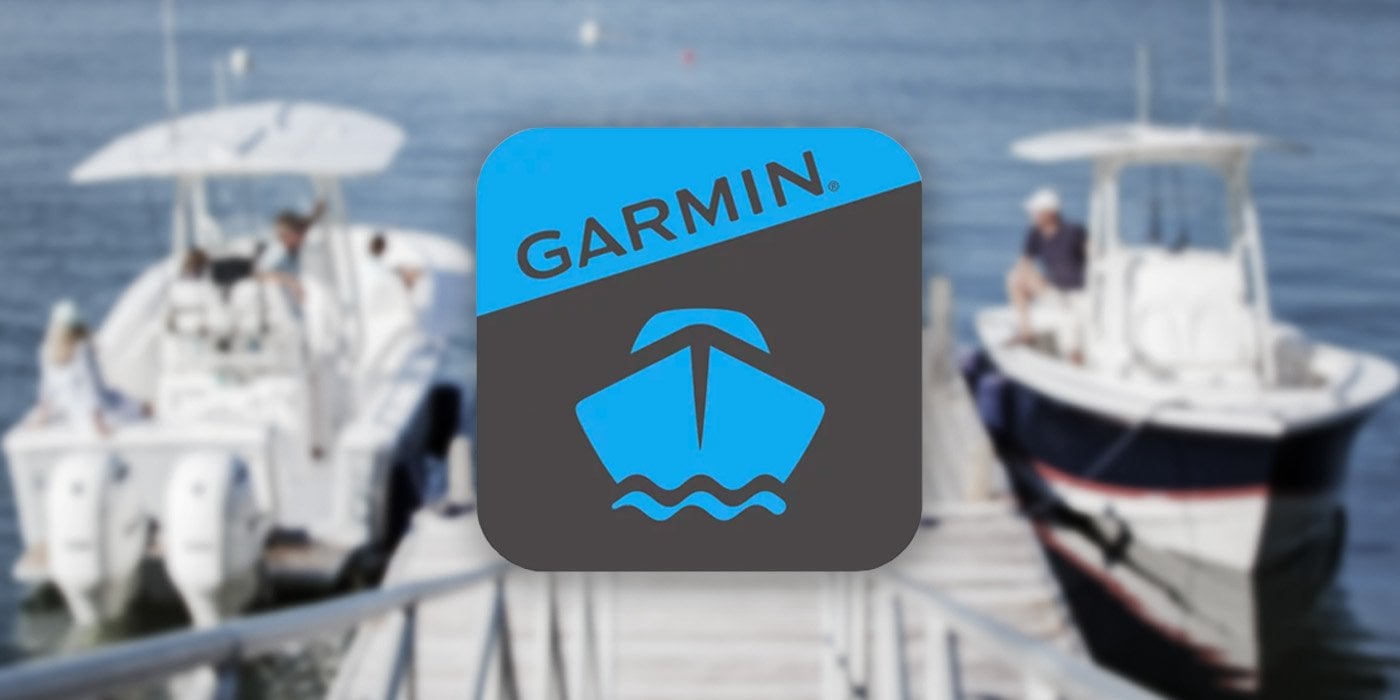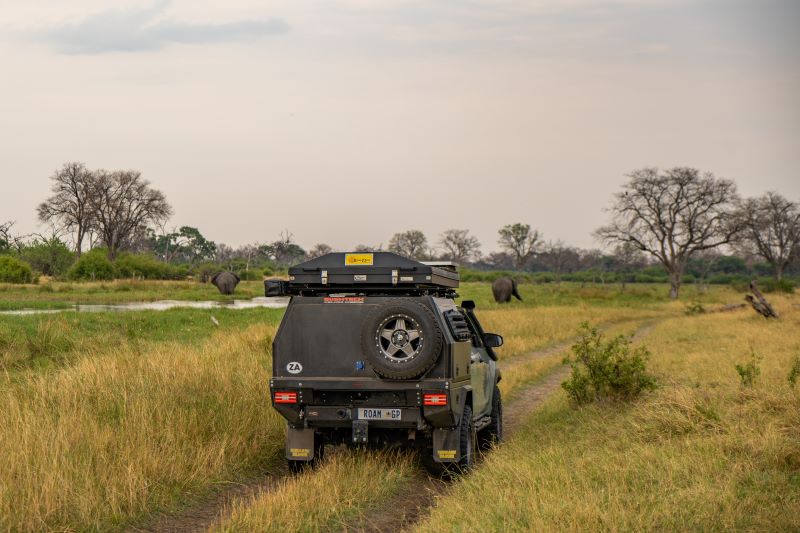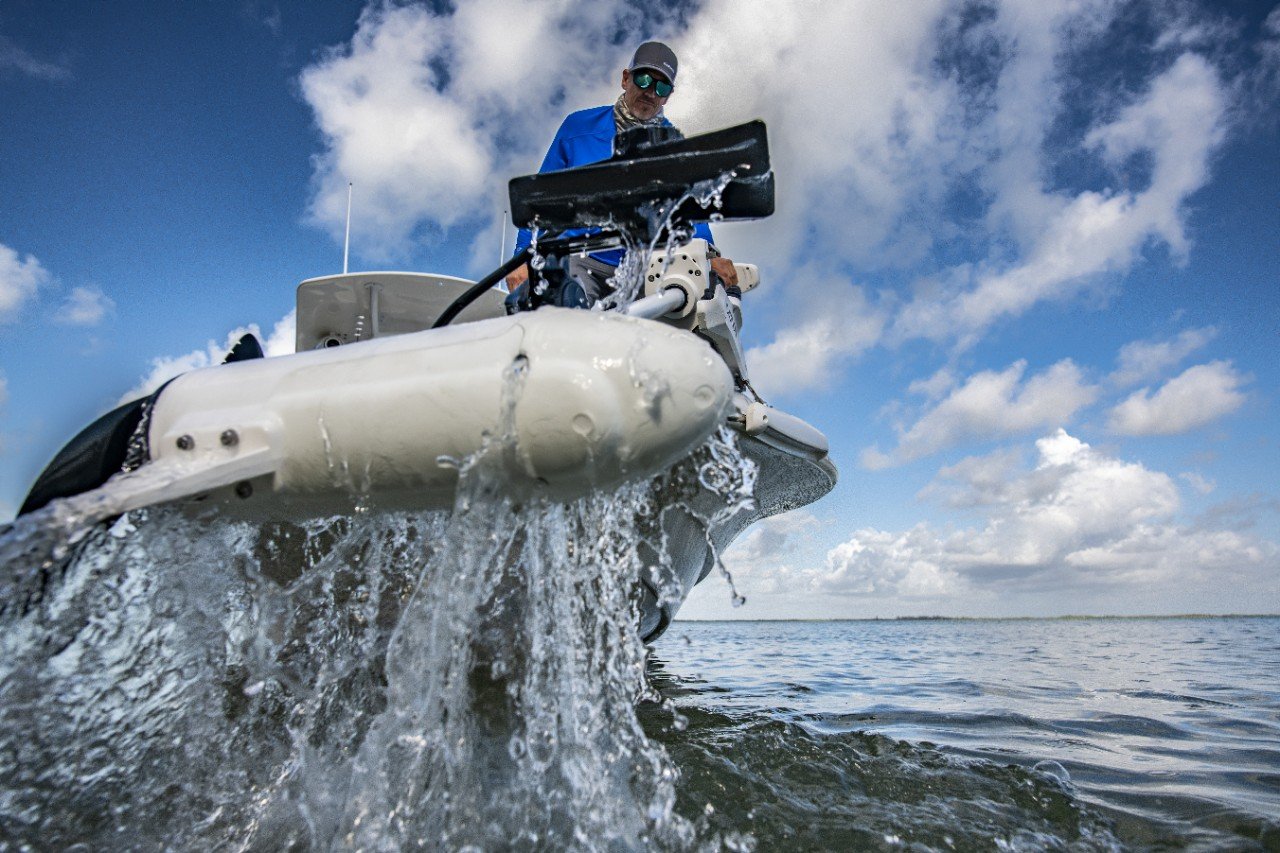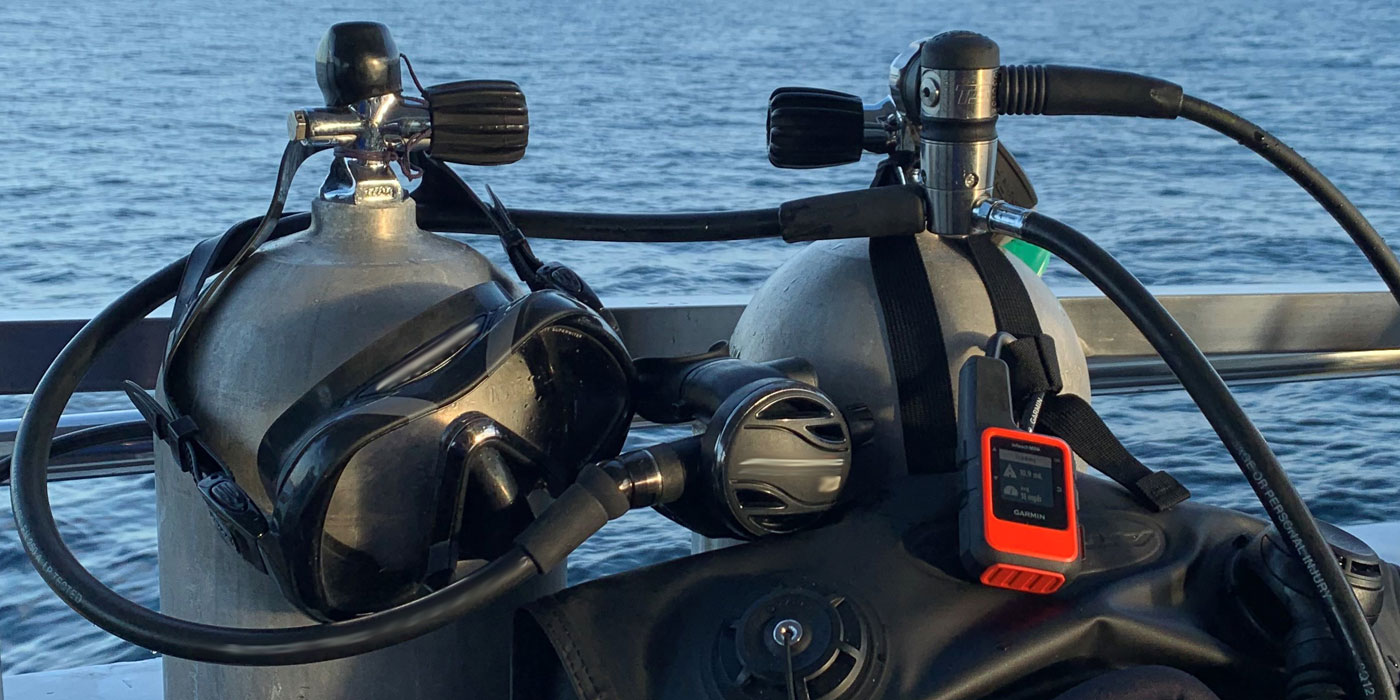
Scuba Diving Instructor Triggers SOS After Boat Crashes Into Rocks
David Lawrence and his wife, Kimberly, were both asleep on the night of May 31 — David on a boat off the coast of the Galapagos, Kimberly back at home in Florida — when a nightmare began to unravel. David was leading a diving trip, and the chartered boat was making its way toward their last destination while the passengers aboard slept, when, suddenly, a horrible noise awoke him.
“Me and my cabinmate jumped up,” David said. “He looked at me, and he said, ‘That’s not right,’ and I immediately knew we had run aground.”
The boat had crashed into underwater rocks while moving at full speed. Following emergency procedure, they ran to the top deck to be lowered into life rafts, but the boat shifted back and forth so violently that furniture flew overboard. Instead, everyone grabbed their passports and shoes and got into the life rafts from the dive deck.
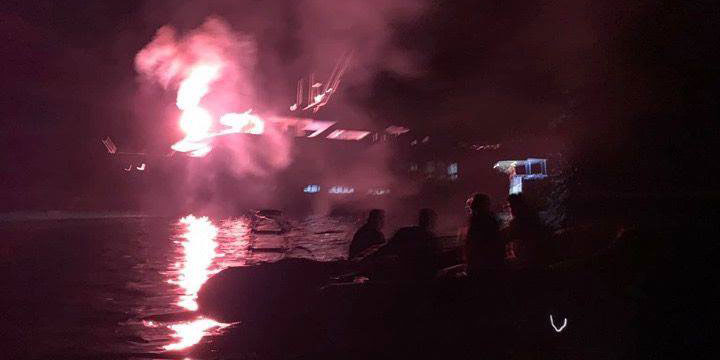
Before leaving the boat, David remembered he had attached his inReach® Mini satellite communicator to a scuba tank in the back of boat. He grabbed the device and hooked it to his life jacket before jumping off, triggering an SOS the moment he contacted the raft. Then, while the raft floated through the remote Pacific Ocean about 675 miles off the coast of Ecuador, David messaged back and forth with emergency services, sharing key information such as how many people needed to be rescued and the possible location of a nearby safe area.
Meanwhile, Kimberly was fast asleep when her phone started ringing at 3:30 a.m. local time. It was the staff at the GEOS International Emergency Response Coordination Center, calling with information about her husband’s SOS situation.
“They told me exactly what was going on,” Kimberly said. “And they always told me when they were going to call back, too. I wanted them to be calling until he made it to the mainland. So they did. It was just very reassuring and comforting.”
David was also messaging her directly from his inReach device, and together the two acted as liaisons for the other people on board. David relayed messages to Kimberly, who then relayed messages to the other passengers’ families.
“I think it would have been a horrible night if I couldn’t have communicated with Kim,” he said. “That was priceless.”
While local emergency services were coordinating a rescue, the chartered diving company was also working to evacuate all the passengers safely to port, which took many hours and several private boats to complete.
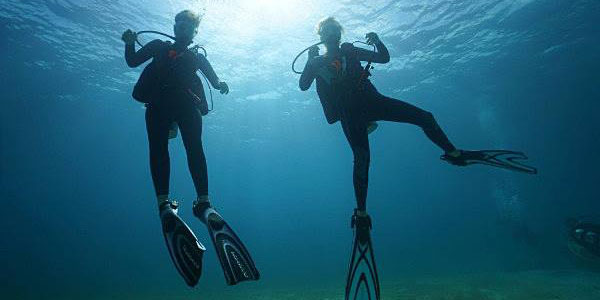
inReach for Divers
While David spent time diving as a teenager, it wasn’t until later in life that it became much more than a hobby.
David’s son was an otherwise healthy 11-year-old when they found out he had a life-threatening tumor. After undergoing surgery to remove it, David Jr. was paralyzed from the neck down. He was told he would never walk again.
It was at that point David realized his hobby could potentially help to retrain his son’s body to move again. He was right. With the help of scuba therapy, David Jr. now walks, runs, dives and instructs diving courses.
After seeing the effects scuba therapy had on his son, David knew that was what he needed to do with the rest of his life. Shortly thereafter, he opened The Scuba Gym in Clermont, Florida, which offers weightless therapy for people with physical and neurological disabilities. He also has a dive shop, leads diving trips, runs diving certification courses and sells diving gear — including inReach devices.
“I always saw the inReach as more of a backwoods type of device,” David said. “But a lot of the places we go to might be six, seven days without cellular service or Wi-Fi, so I started thinking I should take the inReach so I could communicate. I never thought about the SOS part of it.”
But now, after his experience in the Galapagos, he’s implementing a rule where his trip instructors must have a device with them at all times.
“There are some dive spots that are very remote,” he said. “And you don’t take your cellphone for the obvious reason that it could get ruined or flooded.”
David has several international diving trips planned for the future and said he’ll certainly be taking an inReach.
“It’s such a small device, but I was amazed by the technology,” he said.
NOTICE: To access the Iridium satellite network for live tracking and messaging, including SOS capabilities, an active satellite subscription is required. Some jurisdictions regulate or prohibit the use of satellite communications devices. It is the responsibility of the user to know and follow all applicable laws in the jurisdictions where the device is intended to be used.
